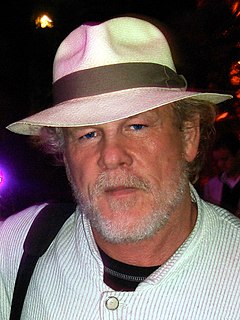A Quote by Helen Fisher
Any kind of novelty or excitement drives up dopamine in the brain, and dopamine is associated with romantic love.
Quote Topics
Related Quotes
What our grandmothers told us about playing hard to get is true. The whole point of the game is to impress and capture. It's not about honesty. Many men and women, when they're playing the courtship game, deceive so they can win. Novelty, excitement and danger drive up dopamine in the brain. And both sexes brag.
It turns out that dopamine is a chemical on double duty in the brain. Along with its role in motor commands, it also serves as the main messenger in the reward systems, guiding a person toward food, drink, mates, and all things useful for survival. Because of its role in the reward system, imbalances in dopamine can trigger gambling, overeating, and drug addiction - behaviors that result from a reward system gone awry.
You start doing the addictive behavior to feel good and then your receptors get overloaded with dopamine, then you stop doing the addictive thing and some of the receptors have shut down and you don't have enough dopamine to feel good. So then you feel bad and go back to the addictive behavior to get more dopamine. The strange thing is that it works with what we think of as uppers and downers and whatever you call gambling - sidewaysers.
My natural state is one that's affected by the shortage of dopamine production in my brain. So my natural state is to be halting and at times tremulous and kind of just physically disturbed. I mean, that's my natural state, given the situation in my brain. But I'm always as happy either way. And so when it comes to me, body language lies.

































